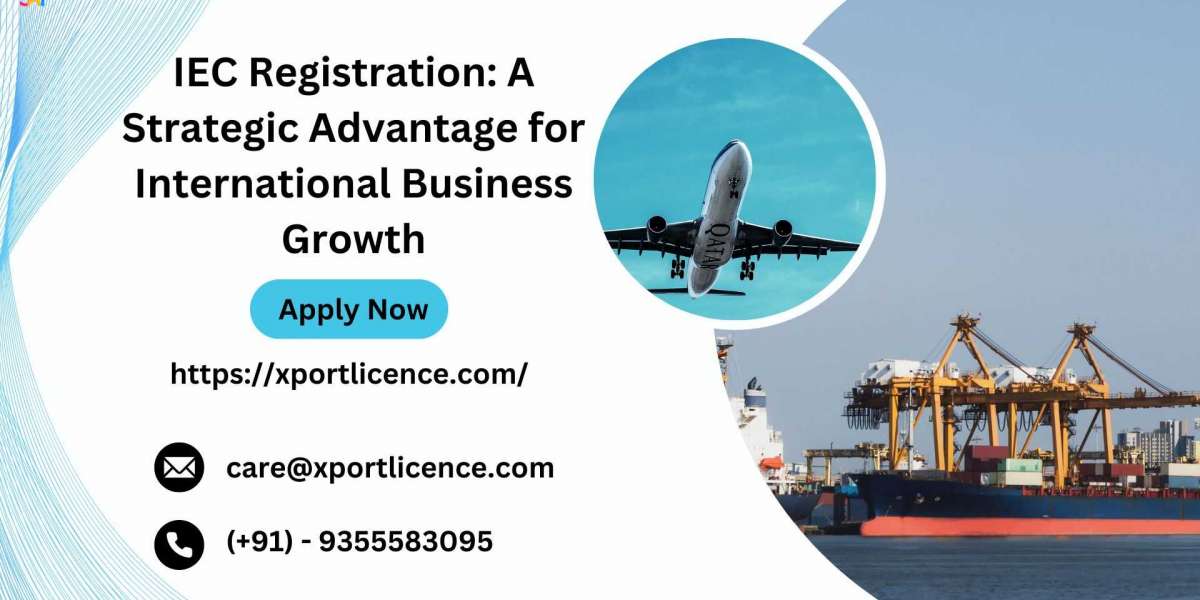Introduction
In today's interconnected world, global trade has become a vital growth avenue for businesses of all sizes. For Indian enterprises, participating in international trade opens doors to broader markets, increased revenue, and new partnerships. However, navigating the complexities of export-import activities requires adherence to regulations, including obtaining an Importer Exporter Code (IEC). This article explores how IEC registration acts as a catalyst for the transformation of Small and Medium Enterprises (SMEs) in India, highlighting its impact on growth, compliance, and market expansion.
What is IEC Registration?
IEC Registration is a 10-digit unique code issued by the Directorate General of Foreign Trade (DGFT) that is mandatory for anyone engaging in import or export activities in India. It serves as a key identifier for businesses involved in global trade, helping the government track and regulate such transactions. Without an IEC, businesses cannot legally carry out import-export transactions.
While large corporations may have access to legal teams and regulatory experts to guide them through compliance, SMEs often struggle with these processes. Understanding the importance of IEC registration and how it streamlines international trade is crucial for these smaller entities.
Importance of IEC Registration for SMEs
Access to Global Markets:- One of the most significant benefits of IEC registration for SMEs is the access it provides to global markets. Small businesses can expand beyond the domestic market and tap into international demand for their products or services. With the right strategy, IEC can turn SMEs into export-driven enterprises, allowing them to scale and diversify their revenue streams.
Boosting Credibility:- International buyers often prefer to deal with companies that are legally compliant and transparent. IEC registration adds a layer of credibility to SMEs, signaling that they are serious about doing business globally. This can attract international partners, investors, and customers who are confident that the SME adheres to global trade regulations.
Government Schemes and Incentives:- SMEs in India are often unaware of the numerous government schemes and financial incentives available to them. IEC registration is often the first step in becoming eligible for these benefits. From tax exemptions to export subsidies, businesses that hold an IEC can access a range of incentives aimed at promoting global trade.
Simplified Banking Procedures:- With IEC, SMEs can easily open bank accounts for receiving foreign exchange payments. This makes financial transactions more efficient and transparent, reducing the friction involved in cross-border payments. It also helps businesses negotiate better terms with foreign buyers by offering streamlined payment solutions.
Challenges Faced by SMEs in Obtaining IEC
Despite its numerous benefits, obtaining IEC registration can present challenges, particularly for small businesses with limited resources.
Lack of Awareness:- Many SMEs are unaware that IEC registration is a prerequisite for participating in global trade. This lack of knowledge can delay their entry into international markets, preventing them from capitalizing on growth opportunities.
Complex Paperwork and Procedures:- For many SMEs, the process of obtaining an IEC can be intimidating. While the registration is now available online, the documentation required, such as a PAN card, bank details, and business proof, may seem overwhelming for first-time applicants. Smaller enterprises without a dedicated compliance team often struggle with these processes, leading to delays in registration.
Cost Concerns:- Though IEC registration itself is not a major expense, some SMEs worry about the hidden costs involved in maintaining compliance with foreign trade laws. The perceived financial burden may deter them from applying for an IEC, even when international expansion is on their horizon.
Changing Regulations:- Trade laws and export-import regulations frequently change, both at the national and international levels. For SMEs, keeping up with these shifts can be daunting. Failing to comply with updated regulations can result in penalties, further discouraging SMEs from pursuing international ventures.
How SMEs Can Leverage IEC Registration for Growth
Strategic Partnerships:- IEC registration opens doors for SMEs to forge strategic alliances with foreign companies. Collaborations, joint ventures, or even franchising agreements can bring in new business opportunities. With access to global markets, SMEs can attract partners who are keen to tap into India’s burgeoning economic landscape.
Diversifying Revenue Streams:- SMEs can use IEC to explore foreign markets and diversify their customer base. By exporting products to countries with growing demand for Indian goods, such as the Middle East, Africa, and Southeast Asia, businesses can safeguard themselves against domestic economic downturns. For example, many Indian SMEs in textiles and handicrafts have found success by expanding their markets globally.
Technology and Innovation:- Access to global markets encourages innovation. SMEs can adopt new technologies and processes that are common in developed markets but relatively new to India. This can help them improve their operational efficiency, reduce costs, and stay competitive both domestically and internationally.
Brand Building:- International exposure allows SMEs to build a global brand. With an IEC, SMEs can participate in international trade shows, exhibitions, and fairs, enhancing their visibility on a global scale. This not only boosts their reputation but also creates opportunities for networking with international buyers and investors.
Note: Click here to update your IEC Code today - Update IEC Code Online
Conclusion
IEC registration is a transformative tool for SMEs aspiring to expand their horizons and engage in global trade. It not only simplifies the process of participating in import-export activities but also opens doors to numerous government benefits, enhances credibility, and promotes business growth. SMEs that embrace IEC registration are better positioned to compete on the global stage, innovate, and build resilient, diverse revenue streams. With the right approach, SMEs can leverage IEC to unlock their full potential in the international marketplace.




